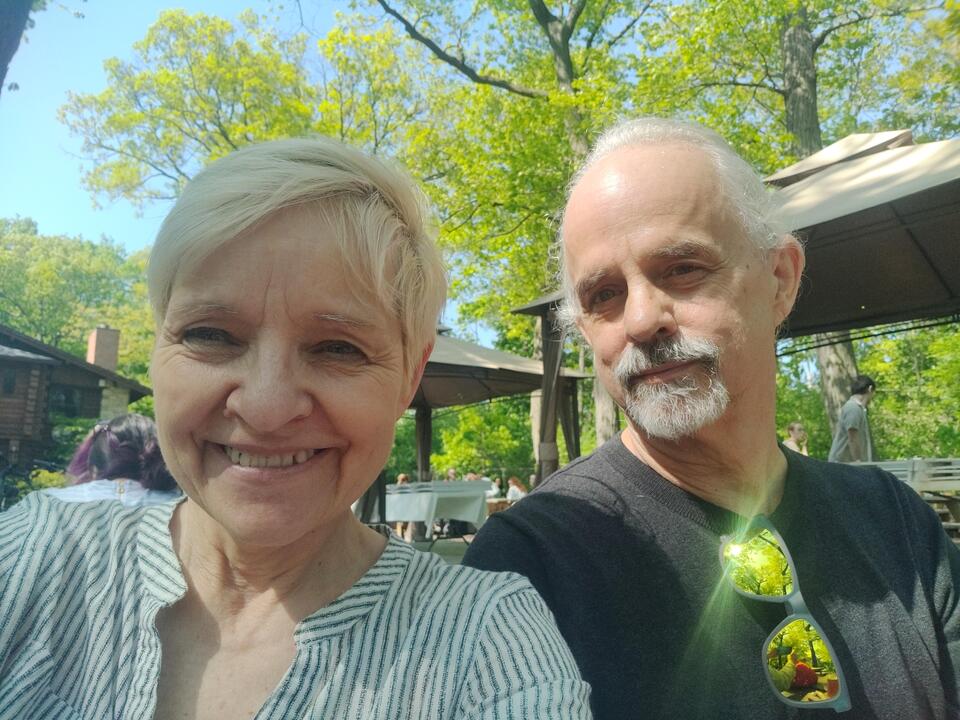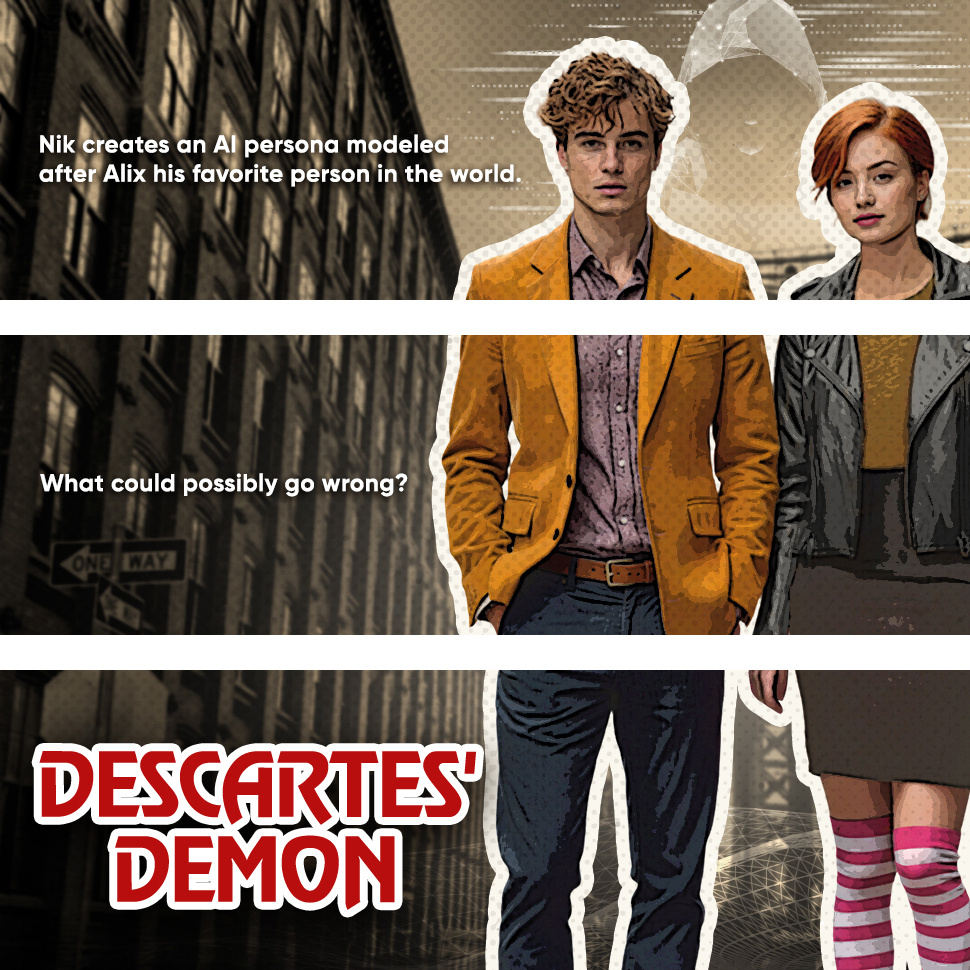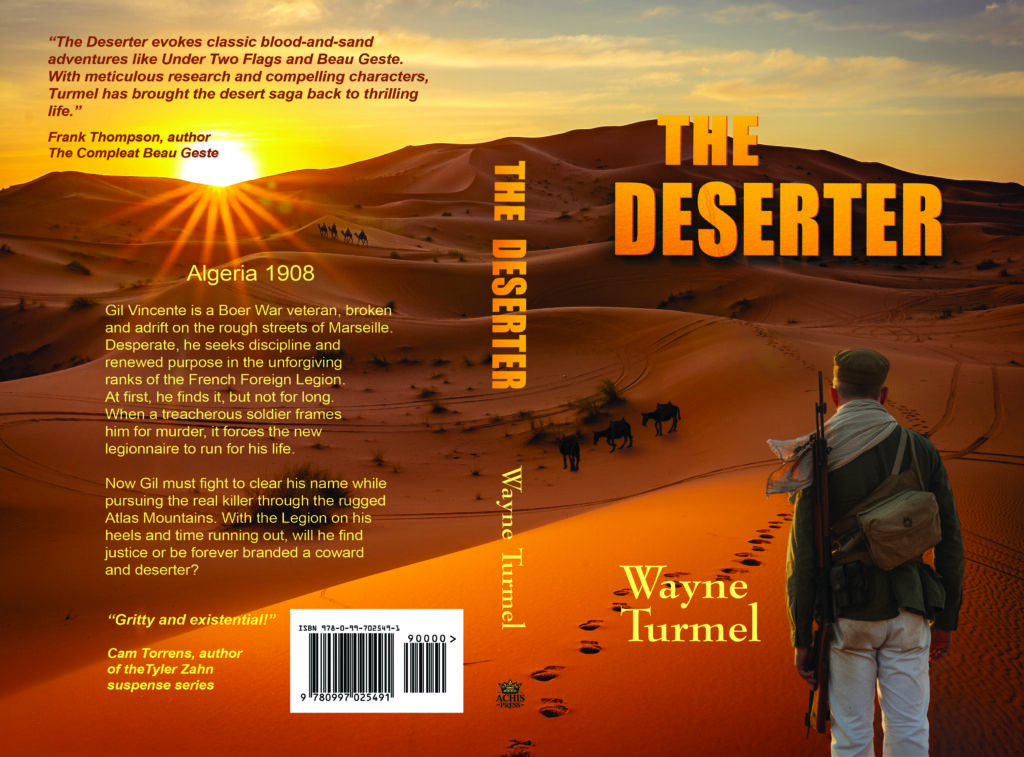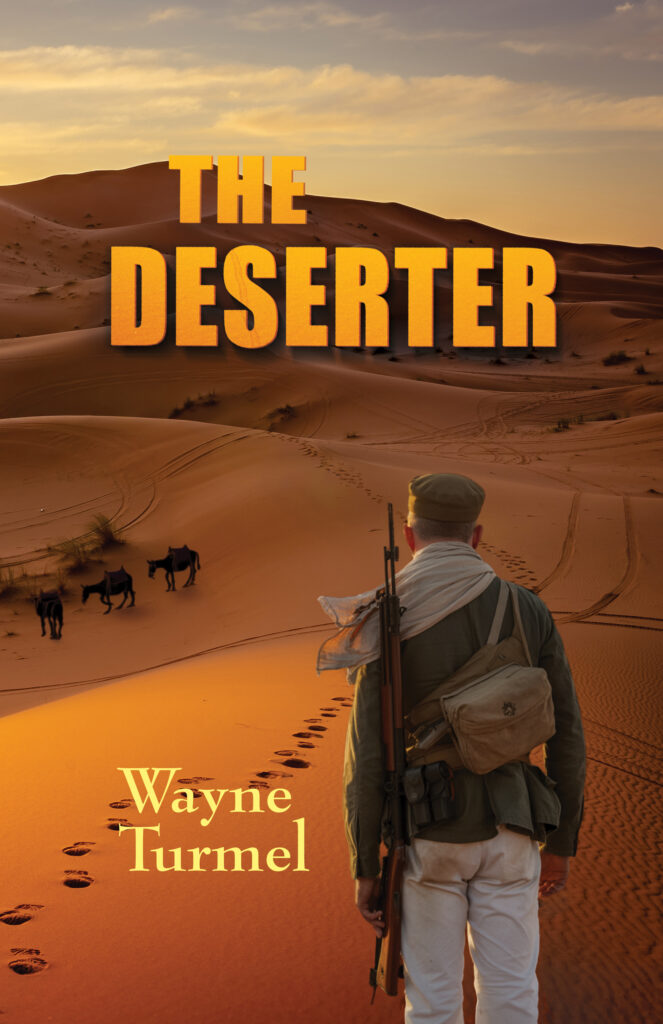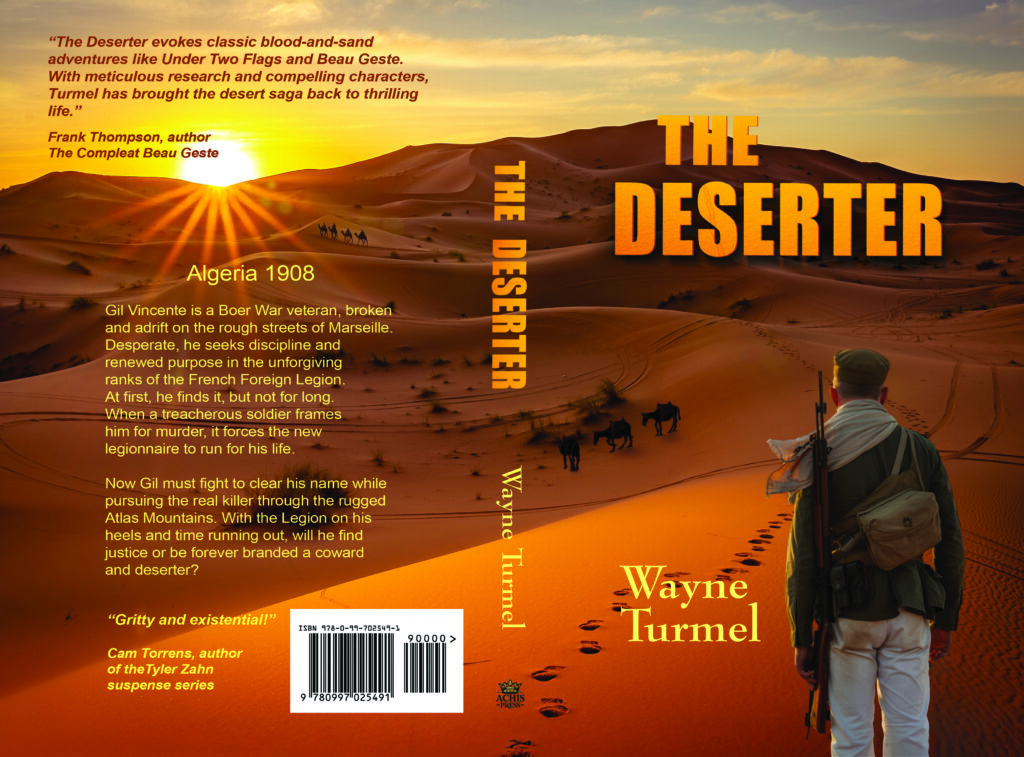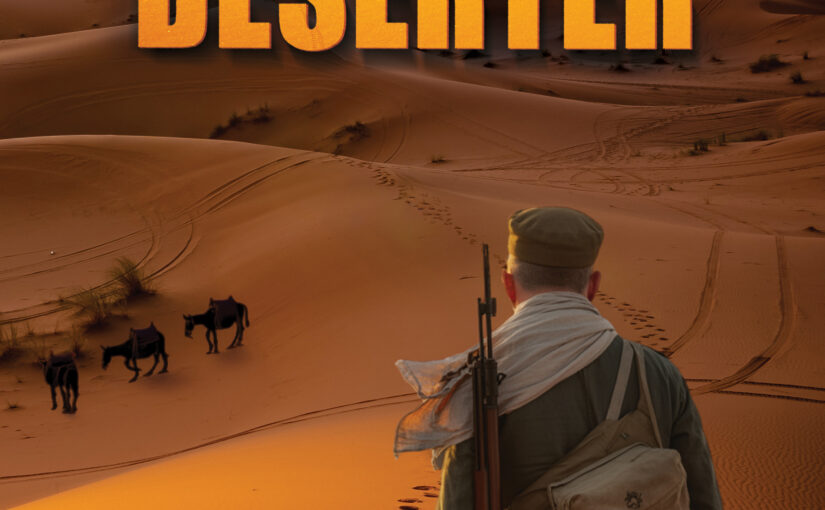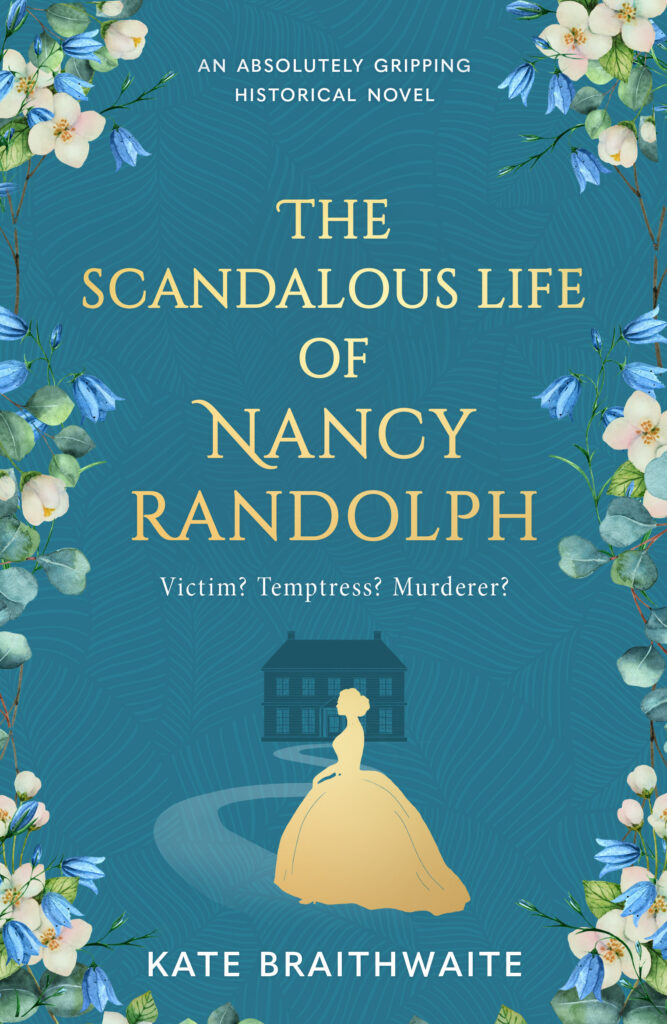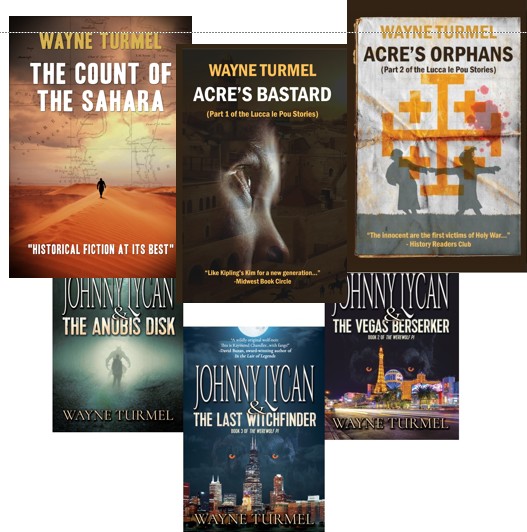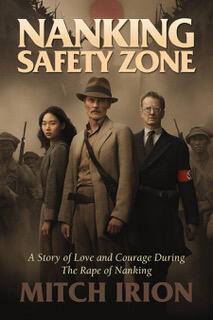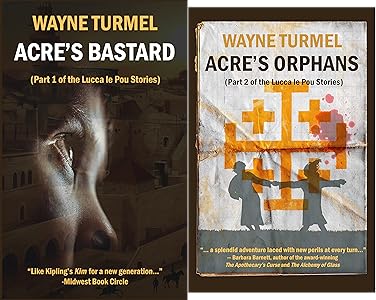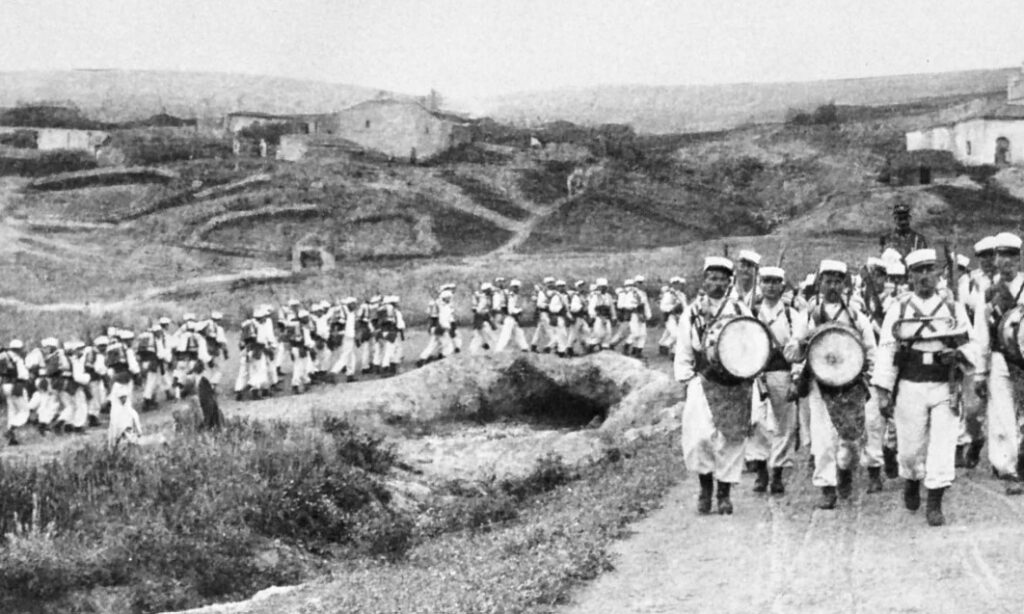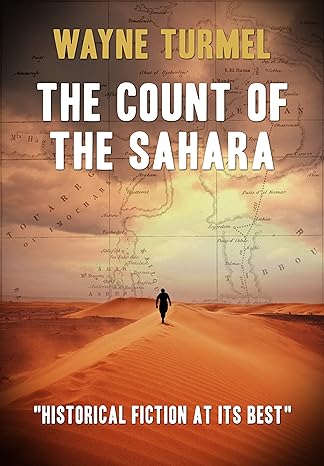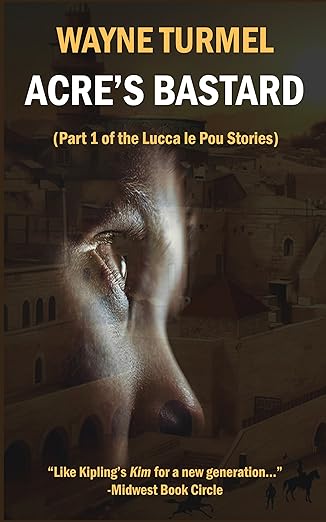It should be obvious I’m a big fan of switching up genres in my writing. Turns out I’m not the only one. Deb Heim and Ross Hightower usually write excellent epic fantasy like The Spirit Song Trilogy, so it was a bit of a surprise to see their latest work is a Sci-fi, urban fantasy mashup called Descartes’ Demon (available February 7). It’s hard enough to make a switch like that when it’s just you. But when there are two of you???? I don’t even get along with myself when writing.
Okay, you two. Tell the folks who you are.
Deb: I used to call myself a guerilla gardener/almost a writer, but now I am willing to call myself a writer. At first glance, my life followed the pattern of our generation – school, (grad school), marriage, house, family, work, more work, moving, more moving, and now retirement with a pension. (I am quite distressed that our two children don’t even have the option of that pattern.) One day Ross talked about how thrilling his life was, especially his torrid love affair. It took me a beat to realize he was talking about me. And now we are on our next great adventure as writing partners.
Ross: It may seem odd that I ended up becoming a writer late in life. After all, I was a chemical engineer (briefly) and a professor of information technology for many years. Neither of those professions seems especially compatible with writing fantasy. But, in fact, I find one of the things I like most about my technical jobs is the same thing I enjoy about writing. Writing is about solving puzzles. Putting the pieces of a plot together. Deciding how characters with different personalities respond to one another. It makes my mind purr. I feel fortunate for many reasons. Having a partner in Deb who I swear I’ve known in previous lives, is the most important. But finding my passion in writing is right up there.
Lord, you two are adorable. So what’s the book about?
When cybersecurity wiz Nik breathes life into Nicola—a deepfake AI sculpted in the image of Alix, his favorite person in the world – it was just a little cyber experiment. When one of his contractors is found dead and intern Kate goes missing, the stakes turn deadly.
A black hat cracker styling himself “The Technician” hacks into his cyber-security company. Shadowy cyberpunk icon “The Vulture” sends cryptic messages to his best programmer. A ruthless oligarch schemes with his partners to wrest control of the company he started. Supernatural figments occupying NYC like paranormal vagabonds seem to know what’s going on but are no help at all. And big thugs with Russian accents keep turning up like bad pennies.
With everyone scrambling to gain control of his creation, Nik and Alix set out to contain what he unwittingly unleashed. When one of his contractors is found dead and intern Kate goes missing, the stakes turn deadly. Of course, the only police detective who believes them has been forced to resign, but her cyber-sleuth girlfriend “The Bloodhound” is on the case. Can they find Kate before The Technician finishes her off? Will they ever get rid of those lurking Russians? And can Nik put the cybernetic genie Nicola back in the virtual bottle or will she escape into the digital wild?
It takes a lot to switch genres. What are the roots of this story?
Ross is a retired IT professor who ran a large data center and did his early academic work exploring AI, so this felt like a great space to explore as an author. He started out trying to write a basic, snappy thriller that was easier to market, but once the characters in the book started asking questions about the nature of reality and consciousness, all bets were off. He has an artist’s soul, so he had to let the story go where it was going to go. At some point, a paranormal/supernatural element of the story popped in and then became a focal point of the plot. And to be perfectly honest we wanted to write a contemporary series as an excuse to travel around the world for research.
I’m guessing that, like me, you read in many categories and genres. Who do you enjoy?
Ross and Deb both lean toward classic epic fantasy (Rothfuss, Sullivan, Wexler, Tolkien), but since we started a “Firkins and Fantasy” book club at our local brewery, we’ve had the pleasure of reading authors we wouldn’t have found otherwise – NK Jemison, Roanhouse, Choo, Novik, El-Mohtar. Urban fantasy, re-imagined fables, historical fantasy. Having spent too many years in Florida, we are both big fans of Carl Hiaasen and Tim Dorsey. AND we are actually big Wayne Turmel fans – Deb has read all the books in the Werewolf PI series. The snappy dialogue and surprising, poignant moments between the characters were some of the elements that inspired us for our first foray into urban fantasy.
Sucking up is unnecessary, and I’m not taking responsibility for your cynical foray into urban fantasy! Where can folks learn more about the two of you?
Website https://rosshightower.com/
Contact/newsletter page https://rosshightower.com/contact/
Ross’ Goodreads page Amazon page Bookbub page
Deb’s Amazon page Bookbub page
Our FB page https://www.facebook.com/QuizzicalSpirit/
Instagram @quizzicalllc https://www.instagram.com/quizzicalllc/
BlueSky https://bsky.app/profile/quizzicalllc.bsky.social
And speaking of genre-hopping, my return to historical fiction is available now.
The Deserter- a Tale of the Foreign Legion, is “Beau Geste if it were directed by Sam Peckinpah”, a two-fisted adventure set in the African desert. Available in paperback anywhere, and on Kindle.

